'Skull Cracker' Michael Wheatley sighted in London
- Published
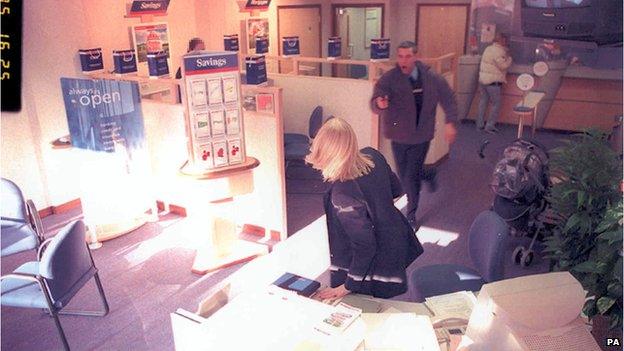
Michael Wheatley raided 13 banks and building societies between 2001 and 2002
"Skull Cracker" robber Michael Wheatley, who absconded from an open prison, has been seen in London.
Police were called to an address in Twickenham, south-west London, on Monday evening, but did not find him.
Wheatley, 55, was given 13 life sentences in 2002 for a string of raids on banks and building societies.
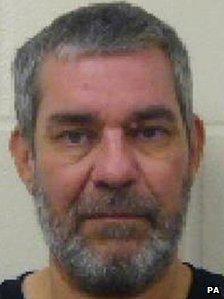
Michael Wheatley failed to return after leaving an open prison
Justice Secretary Chris Grayling said he would check that the risk Wheatley posed was properly assessed before he was transferred to an open prison.
Kent Police said he failed to return to HMP Standford Hill on the Isle of Sheppey after being allowed out.
It is thought he boarded a high speed London-bound train from Sittingbourne.
Wheatley, originally from Limehouse in east London, was jailed after 13 raids over a 10-month period in 2001 and 2002 while on parole from a 27-year sentence for other robberies.
'Very violent man'
He was given the nickname of "Skull Cracker" for pistol-whipping victims, including a 73-year-old woman, during the raids.
The 2001-02 robberies took place over an area from Southampton to Royston, Hertfordshire.
Sentencing Wheatley at the Old Bailey for the robberies and for possession of an imitation firearm, Judge Michael Mettyear told him he could be considered for parole after eight years.
Clare Townsend, who had a gun held to her head by Wheatley when he was robbing a branch of Halifax during that spree, told the BBC Radio 4's Today programme: "I was on the 'net looking at various news items and I suddenly saw a picture of him and I felt quite shocked.
"I do understand that when prisoners are being prepared for a return to ordinary life that at some point they will need to be in something akin to an open prison, but he was a very violent man.
"Because he's absconded, I think it shows he's not really set on reform."
On Monday, Conservative backbencher Philip Davies, MP for Shipley in West Yorkshire, said whoever had allowed Wheatley out of prison was "a berk".
"It is completely ludicrous that a serving life-sentence prisoner is even in an open prison where they can simply walk out," he said.
"As far as I am concerned whoever allowed him to be in an open prison should be sacked."
Mr Grayling said: "I want to know precisely what happened.
"He is clearly in open prison after a decision by the Independent Parole Board, but I want to be sure the proper risk assessments were carried out.
"It's obviously important that people who are a threat to members of the public are kept behind bars."
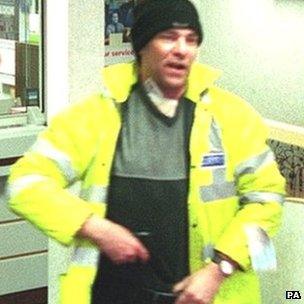
Michael Wheatley, pictured during one of his raids, is said to have links across south-east England
'Unhelpful comments'
The Prison Governors Association (PGA) said it was appalled at the comments made by Mr Davies.
In a statement, the PGA said use of open conditions was important for effective resettlement and that research suggested reoffending rates amongst those released from open conditions were far lower than for those released from closed prisons.
It said decisions to move prisoners to open conditions usually followed Parole Board recommendations and were approved by the justice secretary.
"It is therefore unhelpful for members of Parliament to make comment on areas in which they are not fully conversant," the PGA said.
Juliet Lyon, director of the Prison Reform Trust, said figures for 2012 showed that 485,000 days were served on release on temporary licence and there was a reoffending rate of 0.005%.
"No reoffending is acceptable, but if you compare that to an ordinary prison, the average is almost half the people reconvicted within a year of release. That's terrible," she added.
She also responded to the remarks made by Mr Davies and said the point of open prisons was to try to enable serious and violent offenders to come out in a safe and responsible way, by providing a degree of assessment and supervision.
'Toughened-up rules'
According to Ministry of Justice statistics, Wheatley is currently one of more than 1,200 open prison inmates serving an indeterminate sentence.
Figures showed there were 1,242 indeterminate sentenced prisoners - people who are serving life imprisonment for public protection sentences (IPP) - at 31 December last year.
They included 643 inmates serving life and 599 IPP inmates in open prisons.
Ministers have said there will be a toughening-up of the licence scheme so prisoners are subjected to stricter risk assessments and tagged.
Prisons Minister Jeremy Wright said: "In future, when prisoners are let out on temporary licence, they will be tagged, more strictly risk-assessed and tested in the community under strict conditions before being released.
"Temporary release can be an important tool in helping offenders reintegrate but it should not be an automatic right."
Police have advised the public not to approach Wheatley.
The Kent, London and Hertfordshire police forces have been working with British Transport Police to try to find him.
Officers said Wheatley also had past associations in Ireland, Cheshire and North Wales and "numerous police forces" were involved.
Clare Townsend, victim: "I really thought I was going to die"
- Published6 May 2014
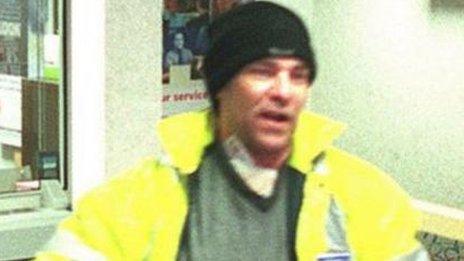
- Published5 May 2014
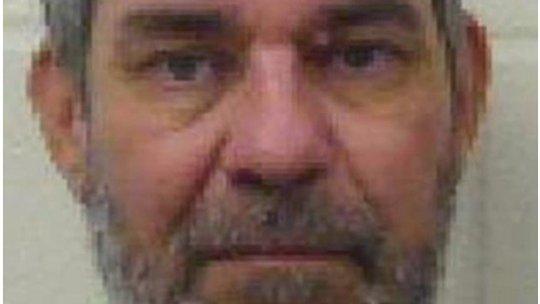
- Published5 May 2014
